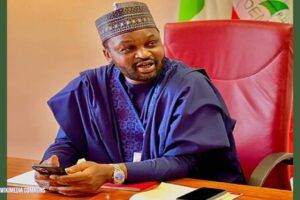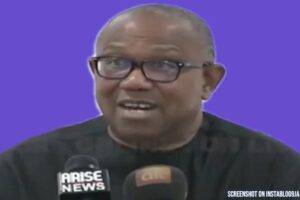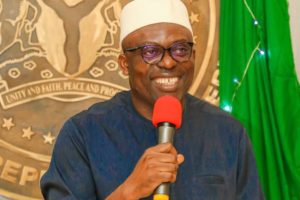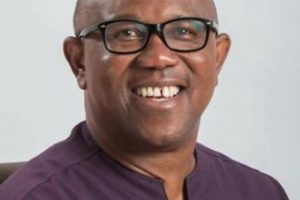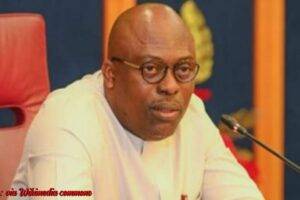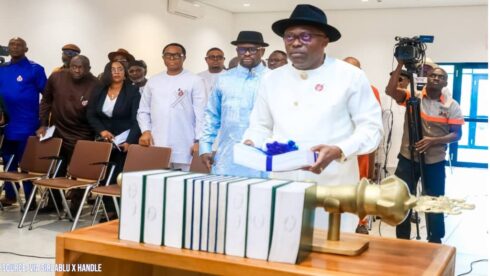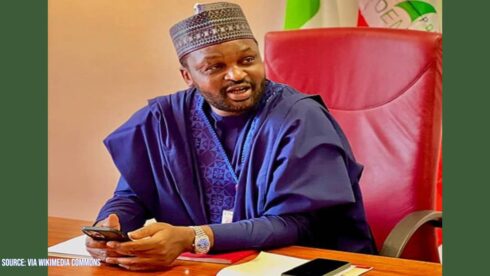Governor Simi Fubara’s presentation of a staggering 1.18 trillion naira budget to only four out of 31 members of the Rivers State House of Assembly has raised eyebrows and tempers across Nigeria. The event, dubbed a “budget presentation,” occurred under unusual circumstances, with critics describing it as an affront to democratic principles. Many on social media were quick to point out that the assembly chamber, meant to host rigorous debates, appeared more like a private boardroom.
“Is this democracy or a family meeting?” quipped a Twitter user, reflecting widespread public discontent. While the governor Simi Fubara’s team maintains that the session adhered to constitutional requirements, legal experts argue that the exclusion of most assembly members undermines the essence of representative governance.
Social Media Meltdown on Governor Simi Fubara’s Budget Presentation: From Memes to Movements
The unveiling triggered a frenzy on social media platforms, with hashtags like #BudgetOfFour and #DemocracyInRivers trending. Users flooded the digital space with satirical memes, comparing the session to a “student group project where only a few show up.” The spectacle has reignited debates about the accountability of Nigerian leaders.
“This is a slap in the face of Rivers citizens,” lamented a Facebook commenter. Others were more blunt, accusing the governor of turning governance into a “one-man show.” However, a handful of loyalists defended the move, arguing it was a calculated step to avoid legislative bottlenecks—a justification that many found unconvincing.
Transparency Questions: Where Will the Trillions Go?
The content of the budget presented by Governor Simi Fubara has been overshadowed by the drama of its presentation. Critics are questioning how the proposed 1.18 trillion naira will be allocated, especially in a state grappling with infrastructure deficits and high unemployment. With no comprehensive debate on the budget, many fear it could be a tool for unchecked spending.
“Four people can’t decide the fate of millions,” a prominent activist tweeted, urging civil society organizations to demand accountability. Transparency advocates have also raised concerns about the opacity of Rivers State’s fiscal management, warning that the situation could worsen if the budget is rubber-stamped without scrutiny.
Legal Implications of Governor Simi Fubara’s Act: Democracy on Trial
Legal experts are now weighing in on whether the budget presentation violated constitutional provisions. The Nigerian Constitution mandates that budgets must be debated and approved by a legislative majority, raising questions about the legality of the governor’s approach. Some argue that the four-member assembly session might not meet the quorum requirement for valid legislative action.
“This could set a dangerous precedent,” a constitutional lawyer warned during a televised debate. While governor Simi Fubara’s spokesperson insists all actions were lawful, the controversy has amplified calls for judicial intervention to clarify the limits of executive power in budgetary matters.
A Historical Pattern of Questionable Governance, Governor Simi Fubara
This isn’t the first time Rivers State has made headlines for unconventional governance. Critics argue that Governor Simi Fubara’s actions reflect a broader trend of executive overreach in Nigerian politics. Previous administrations in the state have faced similar allegations, including bypassing legislative checks to push through controversial policies.
“Rivers is becoming the poster child for how not to run a democracy,” commented a political analyst. The recurring issues highlight the need for institutional reforms to ensure that state assemblies are not reduced to mere rubber stamps for executive agendas.
Governor Simi Fubara’s Act: What’s Next: Protests, Court Cases, or Business as Usual?
As the controversy simmers, civic groups and opposition politicians are gearing up for action. Protests have been planned in Port Harcourt to demand greater transparency and accountability. Meanwhile, there are indications that some assembly members may challenge the budget’s presentation in court, potentially setting the stage for a constitutional showdown.
However, skeptics worry that the outrage will fade, allowing business as usual to continue. “This is Nigeria; we move on too quickly,” lamented a social commentator. Yet, with citizens increasingly vocal on social media, the governor may find it harder to sweep this controversy under the rug.
This incident underscores the complexities of Nigerian democracy, where power dynamics often overshadow governance. Will this be a turning point for Rivers State, or just another episode in its political drama? Only time will tell.
Table of Contents
Discover more from OGM News NG
Subscribe to get the latest posts sent to your email.




